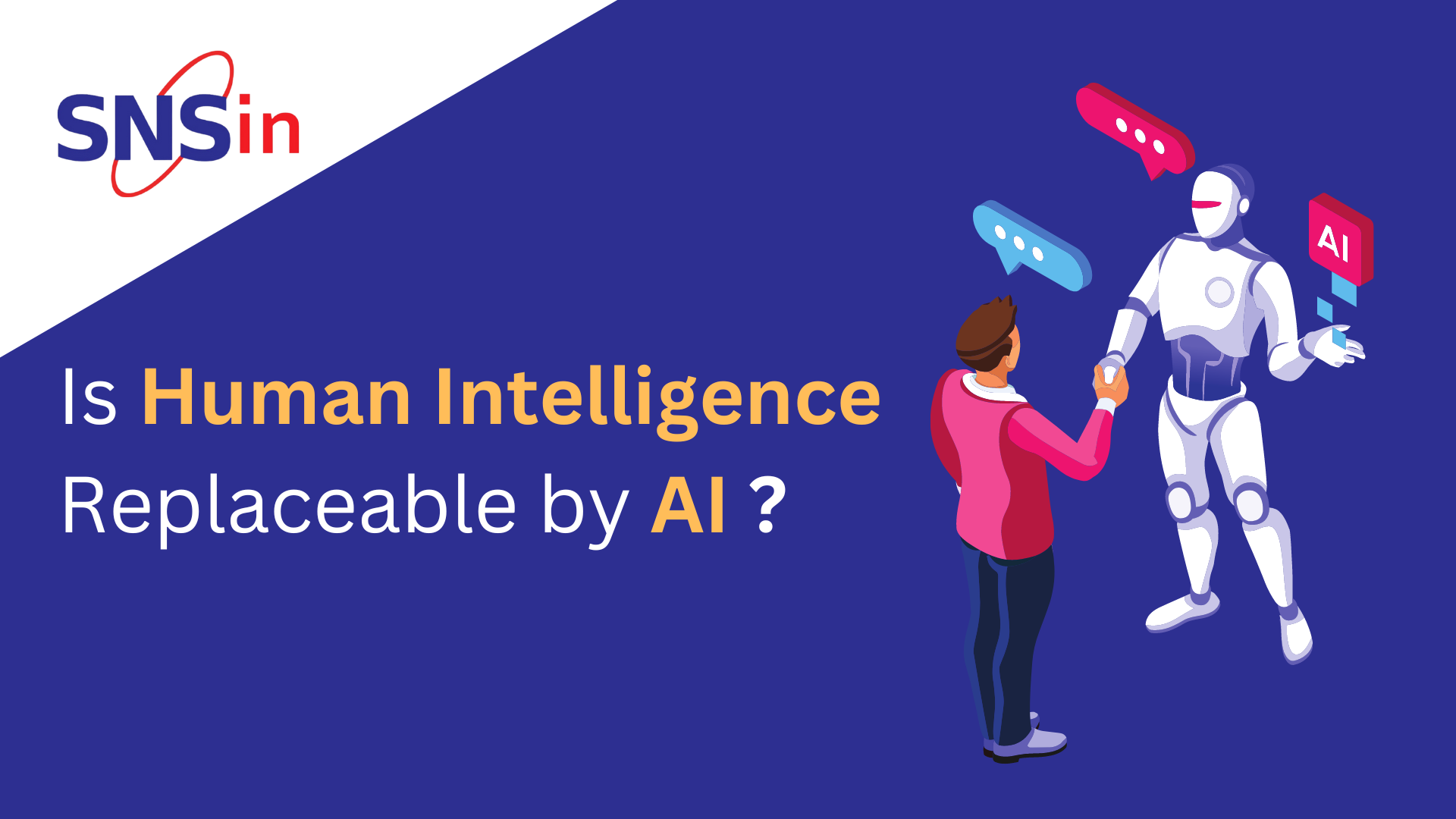With rapid advancements in technology and the wider adoption of AI capabilities across industries, the question of whether human intelligence can be replaced by artificial intelligence (AI) has arguably become a topic of much debate and speculation. While tech experts believe that AI can surpass human intelligence, others argue that technology and machines can never replicate or replace certain aspects of human intelligence.
At the heart of this debate is the nature of intelligence itself. Can intelligence be reduced to a set of algorithms and computations that a machine can perform? One school of thought professes that intelligence is simply the ability to process information and solve problems and that these abilities can be replicated by AI systems. On the contrary, some argue that intelligence is much more complex, multi-layered, and multifaceted, involving cognitive abilities and emotions, sentimentality, creativity, and intuition.
AI, Technological Growth, and its Challenges
One area where AI has already shown remarkable progress is in the field of narrow or specialized intelligence. AI systems have been developed that can outperform humans in specific tasks, such as playing complex games like chess or Go, recognizing objects in images, or translating languages. However, these systems are designed to excel in specific domains and are incapable of the depth of intelligence and versatility that humans possess.
One of the key challenges facing AI researchers is developing systems that can generalize across different domains and tasks. While AI systems can be trained to recognize patterns in data and make predictions based on those patterns, they lack the ability to reason and think abstractly as humans do. They also lack the capacity for empathy and understanding that humans possess, which is an essential component of human intelligence. This depth of intelligence is what is known as authentic intelligence. In an open management ecosystem, interpersonal interaction and dynamics of the outside environment are interlinked. Such an environment requires the ability to anticipate and work around sudden changes while simultaneously being creative in envisioning a future strategy. Therefore, authentic intelligence is required for effective management in such situations.
Another area where AI falls short is in the realm of creativity. Creativity involves the ability to generate ideas and evaluate and refine them based on a wide range of factors, including cultural and social norms, personal preferences, and aesthetic considerations. While AI can be programmed to generate new ideas or solutions to problems, it lacks the capacity for original thought and the ability to generate truly novel ideas.
Finally, it is vital to consider the ethical implications of developing AI systems that surpass human intelligence. If AI were to become truly autonomous and self-aware, it could potentially pose a threat to human autonomy and agency. It is important to ensure that AI is developed and deployed in a responsible, compliant, and ethical manner that takes into account the potential risks and benefits of this technology.
The Infinite Superiority of Human Intelligence
Even though human intelligence may be less accurate and process information slower than AI, it can adapt to changes more efficiently, is more flexible, and can multitask, contrary to AI. In addition, humans possess wisdom, social skills, and self-awareness, which a machine, no matter how well-trained, can never match or surpass.
Conclusion
In conclusion, while AI has made remarkable progress in certain areas of intelligence, it is unlikely that it will ever fully replace human intelligence. Human intelligence is a complex and multifaceted phenomenon involving cognitive abilities – emotional, social, and cultural factors. While AI can be a powerful tool for augmenting human intelligence, it is unlikely to ever fully replicate it. It is important to continue to develop and research AI in a responsible and ethical manner that considers this technology’s limitations and potential risks.About SNS
Secure Network Solutions (SNS) provides a quantifiable, risk-based approach to building a global structure of cyber security infrastructure based on internationally recognized frameworks and practices. We have been providing services and catering to clients across industries for the last 22 years. Write to us at [email protected] or visit us at www.snsin.com. ![]()




